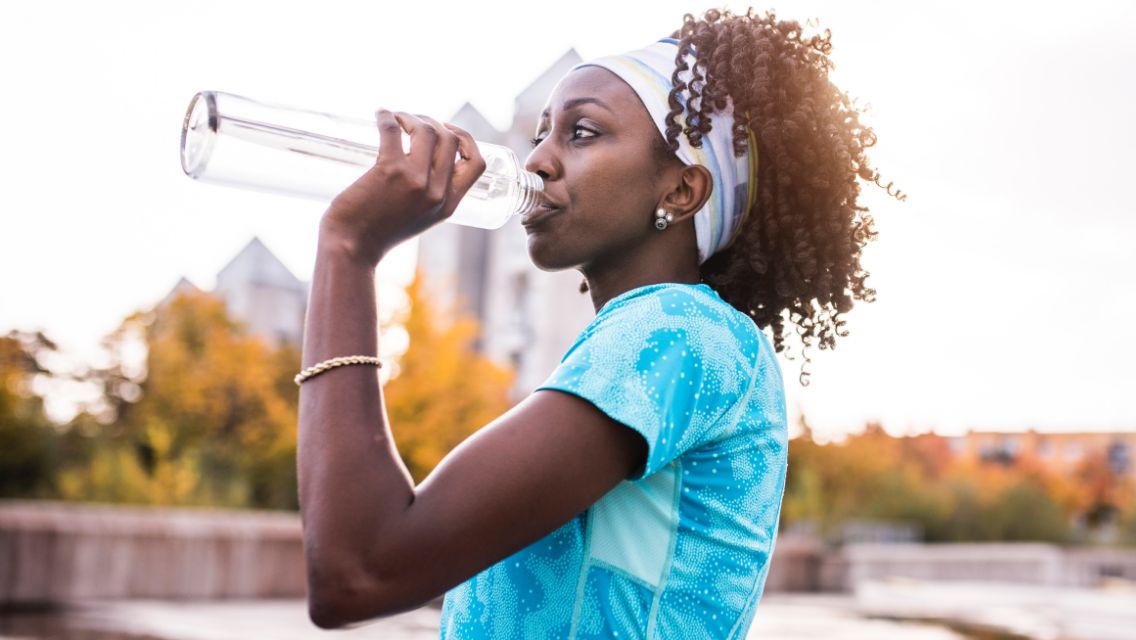Life Time has partnered with the sports health experts at NYU Langone Health to provide insights into the common health issues that have the potential to prevent you from moving freely and functioning at your best.
Expert Source: Nicole Lund, MPH, RDN, Clinical Nutritionist for NYU Langone’s Sports Performance Center
Making up much more than half our body, water plays a major role in regulating our temperature, helping with blood circulation, and assisting with many of our essential bodily functions every day. Not only is hydration essential to feeling good, but it’s especially important when we engage in training and sports competition.
Daily water balance depends on the difference between water gained and water lost. Apart from fever and illness, the primary way we lose water is through urine and sweat. When physical activity creates heat in the body, increasing our core temperature, our body needs a way to transfer that heat and keep cool. When we sweat, our body loses water and that water must be replaced to keep us feeling good.
Dehydration, or losing more water than you have taken in, can decrease athletic performance with as little as a 2-percent loss in body mass from water loss.
There is a lot of variation between people when it comes to just how much they sweat, and factors like the environment, duration and intensity of the activity, your clothing, how often you train in the heat, and exercise economy can all play a role.
Research suggests dehydration affects the body in a few major ways: decreased cognitive function, mood changes, and risk of heat-related illness (especially in warmer weather). From a sports-performance standpoint, there is strong evidence to show that dehydration impedes aerobic performance and may contribute to a decline in mental performance as well.
Dehydration also increases physical strain, giving you a higher perceived effort to perform the same physical activities.
When we sweat, we also lose electrolytes. These essential minerals are vital to many key functions of the body, including muscle contraction. When the body is low on electrolytes, you may experience muscle cramps, muscle weakness, headaches, irregular heartbeat, and dizziness.
There are two main ways to become dehydrated during physical activity. First, you start hydrated but sweat so much that you become dehydrated. Second, and more commonly, you may begin training already under-hydrated; this is more likely to happen when training sessions are back-to-back.
So how do we manage this? When it comes to athletic performance, every inch of potential counts and hydration should be considered an essential component of any athletes’ training plan.
The Sports Health experts at NYU Langone have the multi-specialty expertise to provide coordinated, comprehensive care for all types of athletes. As an official healthcare partner, Life Time is able to offer its members exclusive concierge access to NYU Langone’s world-class orthopedic specialists and performance experts, who can help you meet your fitness goals. To schedule an in-person appointment or video visit with a Sports Health expert, visit nyulangone.org/lifetime.

